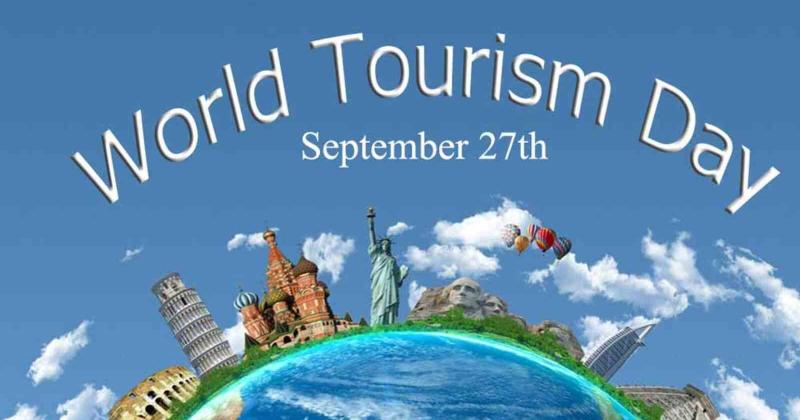As several parts of the world are cloaked in states of instability including wars, tourism in general drops to a low level amid fears of conflagrations that could spread to parts of the world already enjoying a state of stability and security.
With reference to tourism, St. Augustine said once, “The world is a book, and those who do not travel read only one page.” This statement gives a vivid impression on the importance of travelling as well as tourism in the sense that tourism can be viewed as a passport to peace, understanding, and mutual respect among various nations of the world.
The Dicastery for Evangelization has released a message for World Tourism Day 2024, celebrated annually on September 27 and themed "Tourism and Peace", which highlights the connection between precisely two things, namely tourism and peace, while urging a commitment to fraternity and understanding amid global conflicts.
In the message, Pro-Prefect of the Dicastery Archbishop Rino Fisichella underscores the essential role that cultural exchange through tourism can play in fostering peace, saying, “The cultural exchange between peoples, which finds a privileged form in tourism, can also turn into a concrete commitment to peace.”
Acknowledging the devastating impact of war on tourism, Archbishop Fisichella warns that “the absence of tourists creates an additional expression of poverty among the population that loses a necessary form of livelihood to live with due dignity”.
This view is clearly evident in the situation in the Holy Land, particularly in Bethlehem, the birthplace of Lord Jesus Christ, where people are suffering from economic hardships caused by almost the absence of tourists who breathe life into the economic situation and eliminate recession, bearing in mind that tourism in this city is the main source of livelihood of people living there.
It is for this reason, Archbishop Fisichella points out that the Dicastery for Evangelization seeks to contribute to the spread of the peace message, especially among those working in the tourism sector, and extends gratitude to the priests and laypeople who are dedicated to enhancing tourism and pilgrimages, despite the challenges posed by security restrictions.
Archbishop Fisichella continues his letter by noting that “as the world faces ongoing conflicts and challenges, the call for peace resonates more than ever.” He echoes Pope Francis’ words when he asked, “Is it too much to dream that the weapons will be silenced and stop bringing destruction and death?”
He, furthermore, emphasizes that “tourism and peace united with hope become the compelling message for this World Tourism Day 2024, for those who are operators in tourism and for those who undertake the journey with feelings and desire for serenity and harmony.”
So long that tourism has the power to change perceptions, break down stereotypes, and build bridges between cultures, then what impact does religious tourism have on people who seek spiritual welfare and peace of mind?
Religious tourism is important. Why?
Religious tourism is of prime importance because it allows people to connect to their religions and provides a way for humanity to preserve its common heritage.
With Jordan enjoying peace and stability, it has become a cardinal target for religious tourism, as tourism to Jordan's religious sites will hopefully reach exorbitant levels in 2024.
The religious sites in Jordan are among the notable jewels of Jordan. The unique Christian sites reveal stories that exude holiness and beauty. Such sites are among the most important ones that need to be visited so as to smell the scent of sainthood, and to bring oneself close the land trodden by saints and mostly by Lord Jesus Christ, the Prince of Peace.
Jordan, which is an integral part of the Holy Land, has recently received a boost in the field of religious tourism when the National Association of Directors of Christian Pilgrimage in France (Association Nationale des Directeurs de Pèlerinages/ANNNP) held in November 14, 2023 its 75th conference at the Jordan Valley Baptism Site, with 157 members attending, with the aim to enhance religious tourism and promote Christian pilgrimage and trips to Jordan.
In his address at the time, Minister of Tourism and Antiquities Makram Al Qaisi said, “This important event underscores Jordan’s Christian religious status and demonstrates support of the Kingdom by the organization and France", adding that the conference will help the Jordan Tourism Board’s strategy to market Jordan and promote Christian religious tourism to the Kingdom.
On the other hand, Bishop Jean-Marie Le Vert of Bordeaux noted Jordan’s long history of common living and tolerance among religions, made it distinctive in the Middle East and a model for French pilgrims.
Among the major Christian sites designed for religious tourism are the Baptism Site on the eastern side of the River Jordan; Umm Qais, a town in northern Jordan mentioned in the Holy Bible being the location where Lord Jesus Christ performed the miracle of the Gadarene Swine; Tell Mar Elias (Elijah), which is located outside the town limits of Ajloun, where one can see the remains of a Byzantine monastery and two churches dedicated to Elijah that are frequently visited by the faithful; and Anjara where Blessed Mary and Lord Jesus Christ walked the mountain range with some of His disciples and stayed overnight in a cave in the Ajloun mountains nearby during one of Lord Jesus’ trips from Jerusalem to the Galilee.
Tourists arriving in Jordan must not miss visiting Mount Nebo which is very significant because of its role in the Old Testament. The Holy Bible says that Mount Nebo was the site where Prophet Moses lived out his final days and saw the Promised Land, which he would never enter. It is said that Prophet Moses' body was buried there.
With Tourism going hand-in-hand with peace, it is important to welcome tourist tours in Jordan, the land of peace and holiness, so as to draw clear images of the events relevant to Christianity that reflect memories of the beautiful days of the past.
